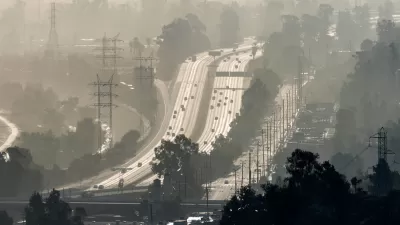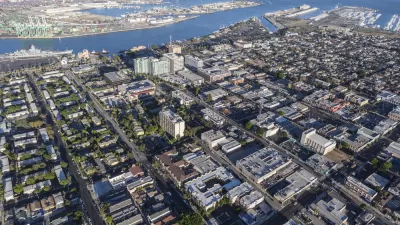The Justice40 initiative could make a major difference for communities burdened by pollution, but only if funds are spent on projects that maintain a focus on equity.

“In a letter sent Tuesday, more than 60 Democrats urged the White House to strengthen implementation of the Justice40 Initiative, which seeks to send at least 40 percent of the benefits of federal climate investments to communities that are overburdened by pollution, climate change and other environmental hazards.”
According to an article by Maxine Joselow and Vanessa Montalbano in the Washington Post, the group called for four key commitments: to consider the 40 percent goal a starting point rather than a ceiling for investments; to ensure programs funded by Justice40 do not cause additional harm to communities; to provide well-paying local jobs; and to establish a Climate Justice and Equity Office tasked with overseeing a “whole-of-government” approach to the program.
The Justice40 initiative has faced criticism from environmental justice advocates who fear that, due to its unclear parameters, the program could end up funding projects that increase pollution and negative health impacts in underinvested communities. Senator Edward J. Markey (D-Mass.), who led the letter-writing group, said “The Inflation Reduction Act has the power to shape a generation of climate action that can build health and wealth in disadvantaged communities, but only if we develop and use a powerful Justice40 framework to right the historic wrongs of environmental injustice.”
FULL STORY: Democrats push White House to strengthen environmental justice efforts

Study: Maui’s Plan to Convert Vacation Rentals to Long-Term Housing Could Cause Nearly $1 Billion Economic Loss
The plan would reduce visitor accommodation by 25,% resulting in 1,900 jobs lost.

North Texas Transit Leaders Tout Benefits of TOD for Growing Region
At a summit focused on transit-oriented development, policymakers discussed how North Texas’ expanded light rail system can serve as a tool for economic growth.

Using Old Oil and Gas Wells for Green Energy Storage
Penn State researchers have found that repurposing abandoned oil and gas wells for geothermal-assisted compressed-air energy storage can boost efficiency, reduce environmental risks, and support clean energy and job transitions.

Private Donations Propel Early Restoration of Palisades Playground
Los Angeles has secured over $1.3 million in private funding to restore the Pacific Palisades playground months ahead of schedule, creating a modern, accessible space that supports community healing after recent wildfires.

From Blight to Benefit: Early Results From California’s Equitable Cleanup Program
The Equitable Community Revitalization Grant (ECRG) program is reshaping brownfield redevelopment by prioritizing projects in low-income and environmental justice communities, emphasizing equity, transparency, and community benefits.

Planting Relief: Tackling Las Vegas Heat One Tree at a Time
Nevada Plants, a Las Vegas-based nonprofit, is combating the city’s extreme urban heat by giving away trees to residents in underserved neighborhoods, promoting shade, sustainability, and community health.
Urban Design for Planners 1: Software Tools
This six-course series explores essential urban design concepts using open source software and equips planners with the tools they need to participate fully in the urban design process.
Planning for Universal Design
Learn the tools for implementing Universal Design in planning regulations.
Ascent Environmental
Borough of Carlisle
Institute for Housing and Urban Development Studies (IHS)
City of Grandview
Harvard GSD Executive Education
Toledo-Lucas County Plan Commissions
Salt Lake City
NYU Wagner Graduate School of Public Service





























